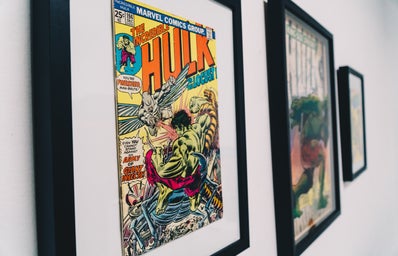Eternals, directed by Best Picture-winner Chloé Zhao, is the latest film to be released by Marvel Studios. Despite being Marvel’s seventh project released this year, Eternals still stands out as a departure from the MCU formula and the rest of the studio’s offerings. The film is a visual spectacle from start to finish, which is unsurprising given Zhao’s penchant for capturing natural beauty. From golden hour in ancient Babylon to the depths of the Amazon rainforest, Zhao makes sure to linger on the weight and presence of each location. Not only do the frequent changes in scenery keep audiences engaged, but they also tie into the film’s underlying message of ecological preservation.
What is Eternals About?
Eternals follows a team of ten immortal beings who have lived on Earth in secret for 7,000 years, with a goal to guide (but not interfere with) humanity and eliminate a race of creatures known as Deviants. In the present day, the Eternals have scattered across the globe, but must reunite after a tragic incident allows the Deviants to re-emerge. The Eternals are alien, to be sure, yet thousands of years on Earth have fostered a sense of love and connection to humanity in each of them, all in unique ways. There’s not just Salma Hayek’s Ajak, the leader of the Eternals, but additionally, a love triangle is formed between Sersi (Gemma Chan), Ikaris (Richard Madden), and human Dane (Kit Harington) – seriously, what’s not to love? And the majority of the comic relief is placed upon Kumail Nanjiani’s Kingo, who has a hilarious scene in which he explains how he’s passed for a Bollywood star for almost five generations. Rounding out the Eternals are Sprite (Lia McHugh), Phastos (Brian Tyree Henry), Thena (Angelina Jolie), Druig (Barry Keoghan), Gilgamesh (Don Lee), and Makkari (Lauren Ridloff).
…Ten Main Characters?
While some may criticize Zhao’s choice to feature ten distinct individuals, I believe it instead created an opportunity for the film to explore a range of motivations and perspectives on issues like agency and moral culpability. Each character has differing points of view – and when they clash and interact with each other, it helps the audience relate to the Eternals in a way that might be deeper than a character simply voicing their opinions into the camera. For example, the Eternal Druig possesses the ability to manipulate the minds of others, and in essence, he can change the course of human history without a second thought. Druig’s powers are intertwined with the themes of the film, in which both he and the audience must ask: are we responsible for the tragedies we have the power to prevent? And unlike some of the other Eternals, Druig has moral clarity and a clear belief that action must be taken despite orders against interference. Instances like this help viewers such as myself connect to the Eternals as humans, rather than inaccessible gods. Zhao injects each character with similar moral quandaries and masterfully weaves their interactions together, sometimes without words, in a manner that is instinctually understandable.
This planet, and these people, have changed all of us.
However, it’s not surprising that a film with such lofty philosophical aspirations would fall short of realization. The aforementioned character interactions, while thought-provoking and mostly entertaining, dominate the film’s runtime (there was a lot of talking). And despite being a globetrotting (or flying) adventure, the film eventually falls into a predicable rhythm that might cause some viewers to check their phones. Eternals also nearly falls prey to the classic MCU villain problem – it features a villain with almost no discernable, interesting motivations or traits, and who is carelessly shoved into the third act for the sake of having a resolution to their story. All of these flaws have led most viewers, including myself, to the conclusion that there was simply too much movie in the movie- and this was a two hour and 37-minute movie, people. The film attempts to cover almost 7,000 years of history with the Eternals, but I don’t believe it needed to explicitly show so many of these moments in order to help the audience love each character.
Final THoughts
Eternals was vastly more ambitious and unfamiliar than its predecessors and left me pondering its questions for much longer than a film like Spider-Man: Far From Home, for example (sorry). Marvel and Disney have become extremely averse to taking risks in their films lately, so much so that many of their projects have started to blend into an amalgamation of quips, third act explosions, and questionable CGI. The character-driven storytelling of Eternals, while heavy-handed at times, still contained moments of genius and deep introspection. It’s my sincere hope that despite the film’s lackluster ratings and box office performance, Eternals begins a new era of mature, thematically rich, and effortlessly inclusive filmmaking by Marvel.


